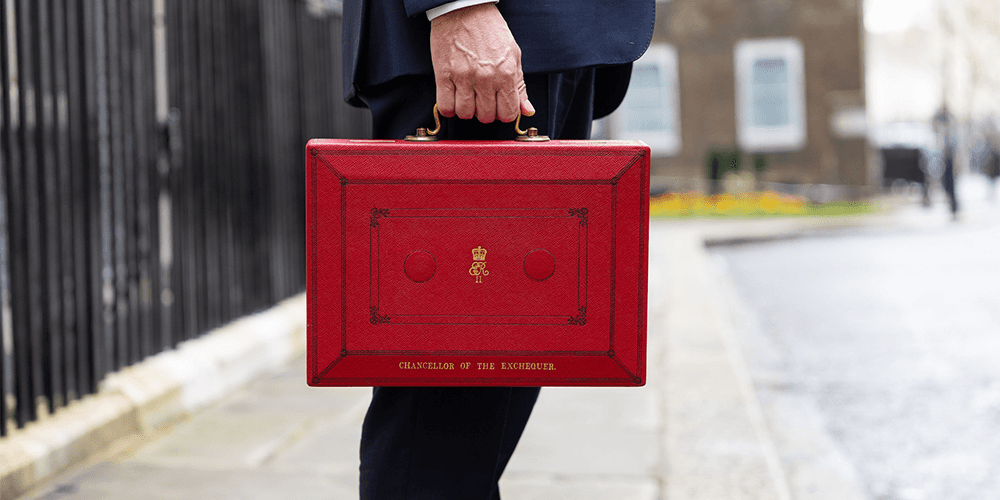Oct 21, 2024
How the Autumn Budget 2024 Could Shape the Future of UK Business Sales
As the UK approaches the Labour government's Autumn Budget 2024, entrepreneurs and business owners across the country are anxiously awaiting announcements that could significantly affect their financial futures. For those contemplating selling their businesses - particularly the many thousands of retiring owners out there - the upcoming budget could have profound implications. While speculations abound, one thing is clear: the decisions made in this budget could shape the UK’s entrepreneurial landscape for years to come.
Let’s explore the anticipated changes in the Autumn Budget, their potential impact on retiring business owners, and how revisions to tax relief policies could encourage reinvestment and long-term economic growth.
Speculated Changes in the Autumn Budget 2024
The Autumn Budget 2024 is expected to usher in significant tax reforms as Labour looks to balance fiscal responsibility with economic growth. Predictions from financial experts, including those from BDO, suggest that changes to Capital Gains Tax (CGT) and adjustments to business-related tax reliefs could be on the horizon. Key among these potential changes is the possibility of increased taxes on capital gains, which would directly affect entrepreneurs looking to sell their businesses.
One of the most talked-about issues is the speculation surrounding Business Asset Disposal Relief (BADR), previously known as Entrepreneurs' Relief, which currently applies discounted Capital Gains Tax of just 10% to a lifetime maximum allowance of £1m from the sale of an owner-operated company. BADR has been a critical tool for retiring business owners, allowing them to reduce the tax burden on the sale of their businesses. However, the Conservative government had previously reduced the BADR threshold from £10 million, making it far less attractive for business owners. Many are hopeful that Labour will restore the previous, more generous threshold. However, early reports suggest that far from reinstating the previous cap: The Chancellor may be considering scrapping BADR entirely.
Retiring Business Owners: A Growing Trend
The timing of this budget is particularly critical as the UK faces a significant wave of business transitions. Research conducted by BizCrunch, a platform that connects acquisition entrepreneurs with business owners needing succession through sale, shows that over 100,000 companies, each with >£1m annual revenues, will be up for sale in the coming years as their owners approach or surpass retirement age. For these entrepreneurs, the sale of their business represents not just a financial transaction but the culmination of years—if not decades—of hard work, innovation, and growth.
BizCrunch’s research has identified a potential annual fiscal impact to the UK Treasury of in excess of £100bn, in the event that all these companies liquidate due to lack of succession.
With so many businesses entering the market, favourable tax conditions will be crucial in facilitating smooth transitions and ensuring that these owners can retire. Any punitive tax increases on the sale of these businesses could create further delay, reduce the value of the businesses being sold, and hinder the financial well-being of those who spent their lives building them.
Economic Impact: Balancing Taxation with Growth
Taxing the sale of businesses more heavily may have unintended consequences beyond just the personal finances of the retiring owners. By imposing higher taxes on business sales, the government risks stifling entrepreneurship and reinvestment - both essential for economic growth.
When entrepreneurs sell their businesses, the capital they generate is often reinvested into new ventures or other areas of the economy. In fact, this is incentivised via the EIS and SEIS schemes which allow capital gains to be deferred or offset, in return for taking significant risks by investing in startups when they are at their most vulnerable. However, if the tax burden becomes too high, these individuals may feel far less inclined to utilise these schemes. This could lead to reduced liquidity in the small and medium-sized business market and discourage the next generation of entrepreneurs from taking over or starting new ventures due to lack of available capital, ultimately slowing medium-term economic growth.
The UK needs to strike a balance between fair taxation and fostering an environment that supports entrepreneurial reinvestment, innovation, and job creation.
Advocating for the Reinstatement of Business Asset Disposal Relief
One of the most effective ways the government can support both retiring entrepreneurs and the broader economy is by restoring the Business Asset Disposal Relief (BADR) lifetime allowance closer to the previous £10 million of business sale proceeds.
Restoring a higher threshold for small business owners would not only benefit retiring entrepreneurs, allowing them to keep more of the profits from the sale of their businesses, but it would also stimulate the economy by encouraging more business sales, succession and reinvestment. Entrepreneurs would be more inclined to sell when the tax conditions are favourable – rather than holding-out for changes by a future Government – ensuring smoother transitions and opening up opportunities for younger, more ambitious business owners to step in.
In turn, this could lead to a dynamic cycle of entrepreneurship, where seasoned business owners reinvest their gains into new ventures, and younger entrepreneurs can take on established businesses with growth potential, creating jobs and driving innovation in the process.
BizCrunch: Supporting Business Transitions
As the business landscape evolves and many entrepreneurs prepare to sell their companies, BizCrunch is here to help. We specialise in assisting individuals and businesses in navigating the complexities of buying and selling companies in the UK, providing expert advice and practical solutions to ensure smooth transitions. Whether you’re a retiring business owner or a budding entrepreneur, BizCrunch is your trusted partner during these pivotal moments.
A Pivotal Moment for Entrepreneurs
The Autumn Budget 2024 represents a critical juncture for the UK’s entrepreneurial community. As speculation around tax reforms grows, it’s essential to advocate for policies that support business transitions and encourage reinvestment. For the thousands of business owners approaching retirement, a fair and supportive tax system could make the difference between a smooth exit and a financially burdensome one.
Restoring Business Asset Disposal Relief to its previous levels is one such policy that would not only benefit retiring business owners but also stimulate the broader economy by facilitating more business transactions and encouraging entrepreneurship. As we await the details of the Autumn Budget, business owners, buyers, and the entire entrepreneurial ecosystem should be prepared to adapt—and BizCrunch will be here every step of the way.



